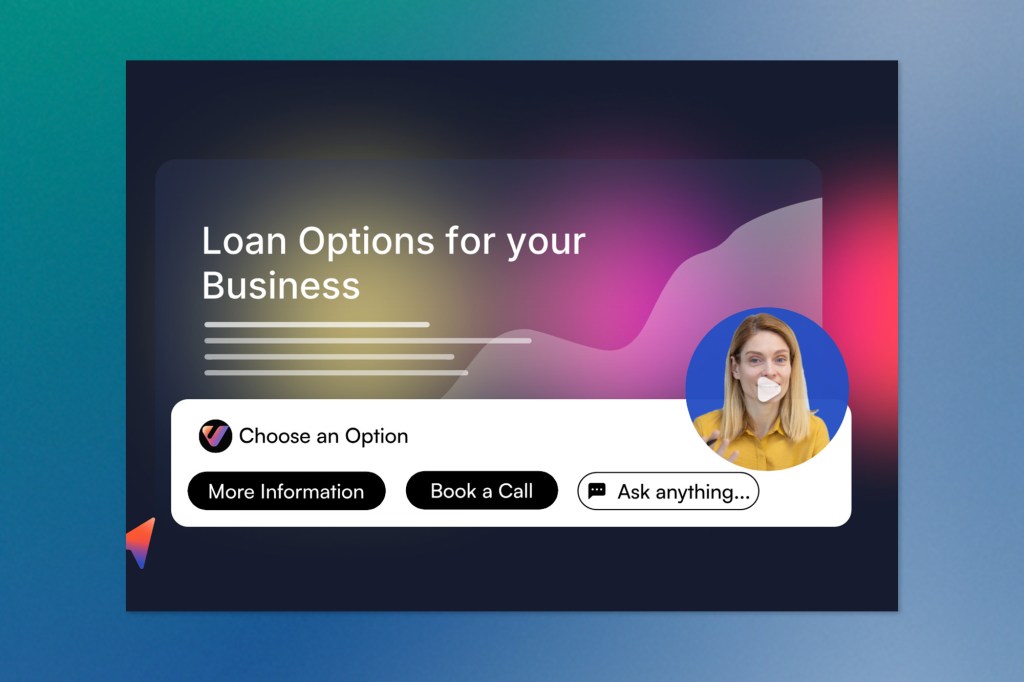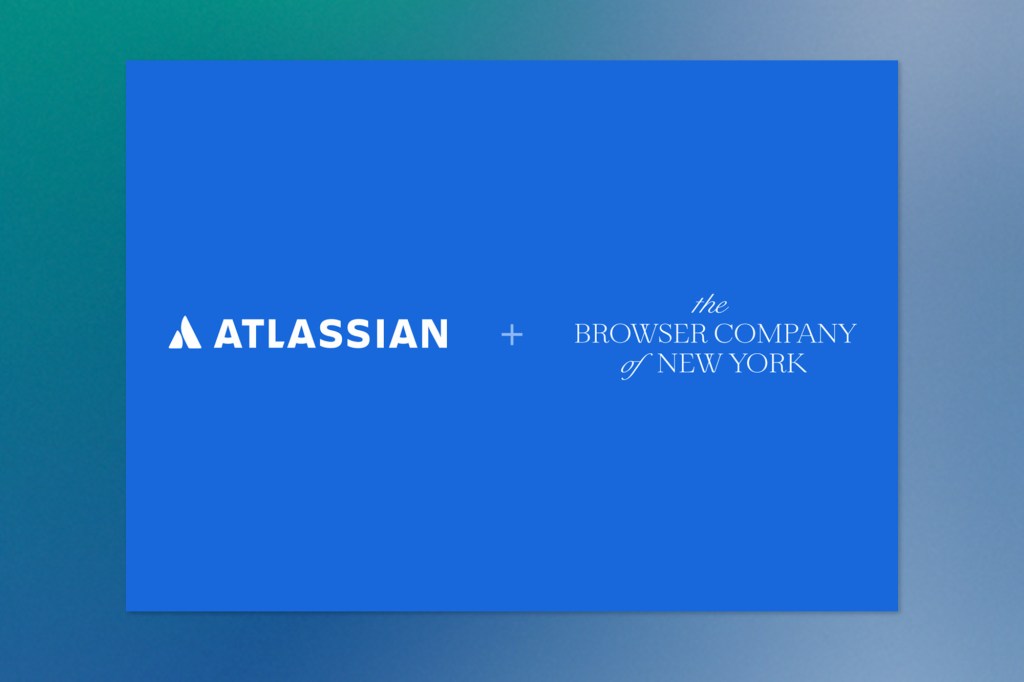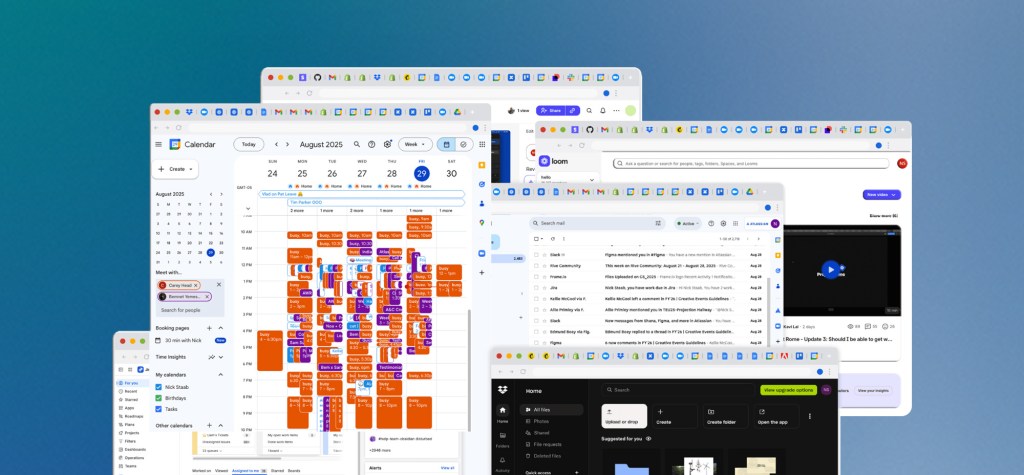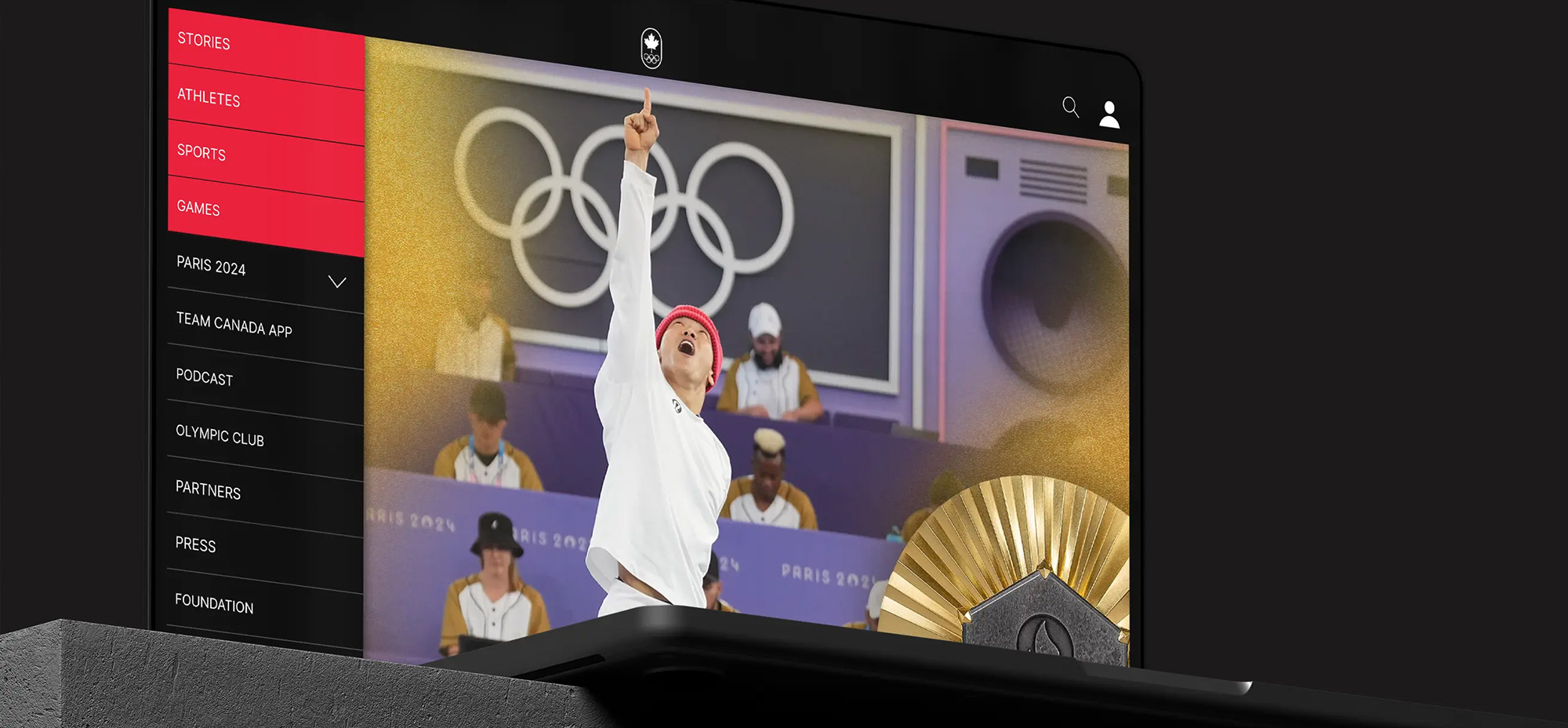The artificial intelligence industry is rapidly evolving from pure technology development to comprehensive ecosystem strategies as companies compete for dominance in the next phase of AI adoption. OpenAI’s expansion into workforce training and Hollywood film production, Atlassian’s acquisition of The Browser Company for AI-first browsing, and specialized players like Canadian startup Evolo creating interactive financial education videos all demonstrate how AI companies are moving beyond core models to build comprehensive solutions.
Listen to the AI-Powered Audio Recap
This AI-generated podcast is based on our editor team’s AI This Week posts. We use advanced tools like Google Notebook LM, Descript, and Elevenlabs to turn written insights into an engaging audio experience. While the process is AI-assisted, our team ensures each episode meets our quality standards. We’d love your feedback—let us know how we can make it even better.
🇨🇦 Canadian Innovation Spotlight
Evolo Raises $3M to Turn Complex Financial Products into Interactive AI Videos
Toronto-based Evolo has secured $3 million in funding to develop AI-generated interactive video content for financial services, insurance, and telecommunications companies. The startup’s approach combines TikTok-style short-form videos with choose-your-own-adventure interactivity, enabling customers to explore complex products, such as mortgages and insurance policies, through AI-powered conversations.

The company’s technology creates decision-tree-style video experiences where customers can ask questions and receive responses from pre-approved, AI-generated content, often featuring avatars of real salespeople who have consented to their likeness being used. This controlled approach aims to avoid the hallucination issues that plague open-ended AI chatbots while maintaining regulatory compliance in heavily regulated industries.
Evolo’s pitch centers on shrinking attention spans, citing research that shows adult attention spans dropped from 2.5 minutes in 2003 to under 60 seconds in 2023. The company positions its interactive videos as a bridge between marketing leads and actual sales conversations, handling initial education and qualification before human salespeople engage for closing deals.
The approach addresses a real pain point in financial services where complex products often require extensive explanation, but the execution depends heavily on content quality and whether customers actually prefer AI interactions over human guidance for high-stakes financial decisions.
Klue Accelerates AI Transformation with Ignition Acquisition
Vancouver-based competitive intelligence platform Klue has acquired Ignition, an AI-powered go-to-market platform based in San Francisco, in a deal that highlights the aggressive consolidation happening as B2B companies pivot to AI-first strategies. The acquisition comes just months after Klue laid off 40% of its workforce as part of a dramatic shift toward AI-centric operations.
Ignition’s technology focuses on agentic AI for product marketing workflows, including customer research, competitive strategy, and roadmapping. Those capabilities directly complement Klue’s competitive intelligence offerings. The deal represents an asset purchase rather than a traditional acquisition, with Ignition’s intellectual property transferring to Klue, while its team continues to work independently on their new venture, DoubleO AI.
The transaction structure reveals an increasingly common pattern in the AI space where companies are acquiring technology and IP rather than entire teams, allowing for faster integration while avoiding the complexities of merging workforces. Klue plans to weave Ignition’s agentic AI capabilities into its Compete and Win-Loss products, potentially creating more autonomous competitive analysis workflows.
Klue’s transformation strategy appears to be paying off, with CEO Jason Smith previously stating the June layoffs would help the company reach profitability by Q4 2025 while freeing up capital for strategic acquisitions. This marks Klue’s second acquisition this year, following the March purchase of fellow Vancouver startup Goldpan’s AI analysis tools.
The deal reflects broader trends in Canadian tech, where companies from Shopify to OpenText are making AI adoption central to their operational strategies. Shopify’s Tobi Lütke notably required employees to prove AI cannot perform a task before requesting additional resources, while OpenText cut 1,600 jobs while making AI usage a “baseline expectation.”
📱 Hardware & Mobile AI
Apple’s iPhone 17 Launch Highlights AI Strategy Tensions
Apple unveiled its iPhone 17 lineup this week, introducing the iPhone 17, 17 Pro, 17 Pro Max, and a new iPhone Air designed for thinness over AI capabilities. The event notably avoided any mention of Siri improvements and only briefly referenced AI features previously announced at WWDC, highlighting Apple’s continued lag in the AI assistant race.
The most significant AI announcement wasn’t even phone-specific. Live Translation coming to AirPods 3 represents Apple’s approach of embedding AI across its ecosystem rather than making it central to individual devices. This contrasts with Google’s Pixel 10, which launched last month with prominent AI features, while iPhone users wait for an enhanced Siri, delayed until 2026.
Reports suggest Apple is exploring third-party partnerships to accelerate AI capabilities, potentially integrating Google Gemini or other models into future Siri versions. This outsourcing approach could benefit consumers by combining Apple’s hardware excellence with best-in-class AI technology from specialized providers, allowing Apple to focus on design and privacy while partnering for AI capabilities.
🌐 Strategic Moves
OpenAI Launches Workforce Development Push with Jobs Platform and Certifications
OpenAI is making a significant move beyond AI model development into workforce training and job placement with two new initiatives aimed at addressing the growing AI skills gap. CEO Fidji Simo announced the launch of the OpenAI Jobs Platform and an expanded certification program, positioning the company as both an AI provider and workforce development facilitator.
The Jobs Platform represents OpenAI’s attempt to solve a practical matching problem – connecting AI-skilled workers with businesses that need them. Rather than just another job board, the platform promises AI-powered matching between candidate capabilities and employer needs, with dedicated tracks for both large enterprises and local businesses. The Texas Association of Business is already planning to use the platform to connect thousands of Texas employers with AI talent.
The certification component is perhaps more ambitious. OpenAI is committing to certify 10 million Americans by 2030 through their expanded Academy platform, offering different fluency levels from basic workplace AI usage to advanced prompt engineering. The certifications will be integrated directly into ChatGPT, allowing users to prepare and test without leaving the application.
Walmart’s participation as a launch partner signals serious enterprise adoption. As the world’s largest private employer, Walmart’s commitment to bringing AI training “directly to our associates” validates OpenAI’s workforce strategy and provides immediate scale for the certification program.
This workforce play addresses a critical bottleneck in AI adoption – the skills gap that prevents many businesses from effectively implementing AI tools they’re already paying for. By positioning itself as both the technology provider and the training solution, OpenAI is creating a more complete ecosystem around its products while potentially capturing additional revenue streams beyond model access.
DeepSeek Plans AI Agent Push to Challenge OpenAI’s Dominance
Chinese AI startup DeepSeek is preparing to launch an advanced AI agent platform by the end of 2025, marking the company’s next major move following the breakthrough success of its R1 reasoning model. The Hangzhou-based company is developing software designed to execute multi-step tasks autonomously with minimal user input while learning from previous actions.
The announcement comes as the industry eagerly awaits DeepSeek’s R2 model, the successor to R1 that shocked the tech world in January by matching OpenAI’s performance at a fraction of the development cost. R1’s emergence demonstrated that effective AI development doesn’t necessarily require the massive capital expenditures that characterize Western AI companies, fundamentally challenging assumptions about competitive moats in the industry.
DeepSeek’s relatively measured development pace contrasts sharply with Chinese rivals like Alibaba and Tencent, who have maintained aggressive model release schedules. This deliberate approach appears to reflect founder Liang Wenfeng’s focus on breakthrough innovations rather than incremental improvements, though it has left the company notably quiet since R1’s debut.
The move into AI agents represents a strategic bet on what Goldman Sachs identifies as the next major advancement in generative AI – systems that can meaningfully boost business productivity through autonomous task execution. However, current AI agents still require significant human oversight, making the technical execution of DeepSeek’s vision critical to its success.
If successful, DeepSeek’s agent platform could further establish the company as a serious challenger to US AI dominance, particularly given the cost-efficiency advantages demonstrated with R1.
The Browser Company Sells to Atlassian in AI Browser Play
The Browser Company, maker of the Arc browser and AI-powered Dia, has agreed to be acquired by Atlassian in an all-cash deal that represents a significant bet on browsers becoming the next computing platform. The acquisition positions Atlassian to compete in the emerging AI browser space while giving The Browser Company the distribution muscle needed to scale Dia beyond its current niche user base.

The timing reveals the competitive pressures facing innovative browser companies. Despite Arc’s cult following among power users and designers, The Browser Company recognized that product excellence alone wouldn’t be sufficient to challenge established players like Google Chrome or emerging AI-powered alternatives. Atlassian’s enterprise relationships spanning 80% of the Fortune 500 provide immediate access to the workplace market, where AI browsers could see the fastest adoption.
For Atlassian, this represents a strategic expansion beyond traditional collaboration tools into the foundational layer of work: the browser itself. As remote and hybrid work cement the browser as the primary interface for professional tasks, controlling that experience becomes increasingly valuable. The acquisition aligns with Atlassian’s broader AI initiatives and positions them to integrate AI browsing directly into their existing suite of workplace tools.
The deal structure preserves The Browser Company’s independence, with founders Josh Miller and Hursh Agrawal remaining as CEO and CTO, respectively. This approach suggests Atlassian recognizes the cultural and creative elements that made Arc distinctive, while providing resources for faster cross-platform development and enterprise-grade security features.
The Browser Company’s emphasis on bringing Dia to “every platform faster than previously imagined” indicates ambitious scaling plans, particularly for mobile, where traditional browsers have struggled to innovate. The promise of deeper workplace integrations—connecting email, calendar, and productivity apps through AI—could differentiate Dia in an increasingly crowded AI assistant market.
The acquisition validates the thesis that browsers will become AI-first platforms, setting up potential competition with Microsoft’s Edge Copilot integration and Google’s inevitable Chrome AI features.
🎬 Content & Creative Industries
OpenAI Targets Hollywood with AI-Animated Film “Critterz”
OpenAI is making its most ambitious push into entertainment with “Critterz,” an AI-generated animated feature film set for a 2026 theatrical release following its planned Cannes Film Festival debut. The project represents OpenAI’s attempt to prove that AI can produce Hollywood-quality content while dramatically reducing both budgets and production timelines.
The film’s economics are striking – a sub-$30 million budget completed in just nine months, figures that represent a fraction of traditional animated feature costs and schedules. Major animated films typically require budgets exceeding $100 million and multi-year production cycles, making Critterz a direct challenge to established industry economics. The project utilizes OpenAI’s latest tools, including the recently launched GPT-5 model.

OpenAI’s Hollywood timing is strategic but challenging. The entertainment industry remains deeply skeptical of AI following recent strikes partly centred on AI usage concerns, ongoing intellectual property disputes, and audience resistance to AI-generated content. The company is partnering with established players, including Native Foreign and Vertigo Films, to provide traditional industry credibility and access to distribution channels.
The Cannes debut represents a calculated move to legitimize AI filmmaking within the industry’s most prestigious venue. Success at Cannes could provide the cultural validation needed to overcome Hollywood’s current AI resistance, while failure could reinforce existing skepticism about AI’s creative capabilities.
Beyond proving technical feasibility, Critterz faces the fundamental challenge of audience acceptance. Previous AI-generated content has often struggled with the “uncanny valley” effect and lacks the emotional resonance that drives successful animated films. The project’s ability to deliver compelling storytelling alongside technical innovation will determine whether it opens doors for broader AI adoption in entertainment.
If successful, Critterz could accelerate industry transformation by demonstrating that AI can maintain creative quality while offering significant cost and time advantages, potentially reshaping how animated content gets produced and financed.
Roblox Pivots to Social Video with TikTok-Style Feed and Enhanced AI Creation Tools
Roblox is making a strategic shift toward social media functionality with the introduction of “Roblox Moments,” a TikTok-inspired short-form video feed that lets users capture, edit, and share 30-second gameplay clips. The feature, launching in beta for users 13 and older, transforms Roblox from purely a gaming platform into a hybrid gaming-social media experience.
The timing is notable as social platforms increasingly compete for younger audiences’ attention. By keeping users within the Roblox ecosystem to share and discover content, the company is directly challenging the time users might otherwise spend on TikTok or Instagram. The integration is seamless – users can jump directly into gameplay experiences from videos, creating a frictionless path from content consumption to active gaming.
Roblox is also significantly upgrading its AI creation capabilities, moving beyond static 3D object generation to fully functional interactive items. Creators can now prompt for complex objects like “a sleek, futuristic red sports car” and receive a drivable vehicle complete with customizable features like opening doors. This represents a significant leap in AI-assisted game development, potentially democratizing complex asset creation for developers who lack advanced 3D modelling skills.
The company sweetened the deal for creators by increasing DevEx rates to 8.5% more when converting Robux to cash – 100,000 Robux now equals $380 instead of $350. With top 1000 developers already averaging nearly $1 million in revenue, this increase signals Roblox’s commitment to retaining talent as competition for creator attention intensifies.
Real-time voice chat translation launching next year could be a game-changer for Roblox’s global community, breaking down language barriers that currently limit cross-cultural gameplay. Combined with new text-to-speech and speech-to-text APIs, these features position Roblox as a more accessible and internationally connected platform.
The social video push comes as Roblox faces ongoing scrutiny over child safety, making the 13+ age restriction and enhanced moderation for video content particularly significant for the platform’s reputation management efforts.
Keep ahead of the curve – join our community today!
Follow us for the latest discoveries, innovations, and discussions that shape the world of artificial intelligence.


